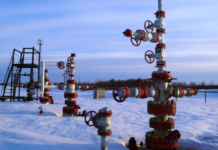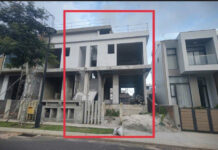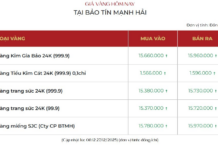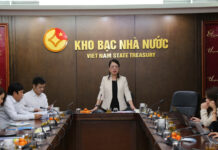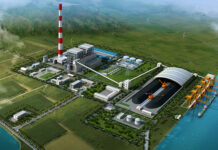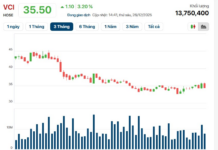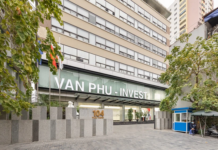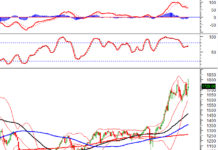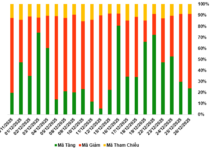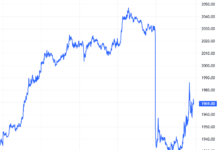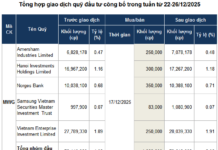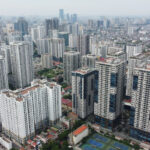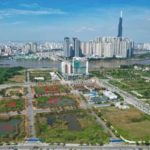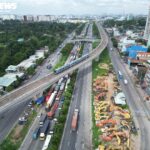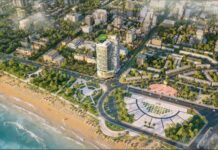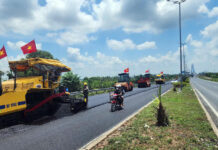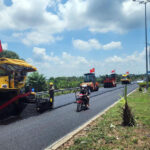On the afternoon of September 22nd, during the regular meeting of the Central Steering Committee on Housing Policy and Real Estate Market, Prime Minister Pham Minh Chinh, the Committee’s Head, directly questioned: Why do condominium prices remain consistently high?
“With prices ranging from 70 to 100 million VND per square meter, how can the average citizen afford housing?” the Prime Minister stated, urging both regulatory bodies and businesses to address and resolve this issue together.
This question resonates with the reality faced by homebuyers in Ho Chi Minh City over the past 1-2 years: most projects eligible for sale in the city center fall into the high-end segment, with prices commonly exceeding 100 million VND per square meter.
A survey by reporters from *Nguoi Lao Dong* newspaper reveals that projects around Thu Thiem Center, such as The OpusK Residence, are priced between 250-350 million VND per square meter. Slightly farther from the core center, The Privé exceeds 100 million VND per square meter, Lumiere Midtown surpasses 130 million VND per square meter, and Eton Park is above 120 million VND per square meter. Even Vinhomes Grand Park, once considered a more affordable option, now starts at 70 million VND per square meter.
Market reports from real estate research firms indicate that average apartment prices in Ho Chi Minh City remain exceptionally high. DKRA Group’s August 2025 statistics show that central area prices have risen to approximately 80 million VND per square meter, a 12-18% increase from previous levels. In outlying areas like former Binh Duong, prices have climbed 8-10%, currently averaging around 47 million VND per square meter. The anticipated “post-merger increase in supply and price reduction” has only sporadically appeared in adjacent areas, while prices within the city continue to rise.
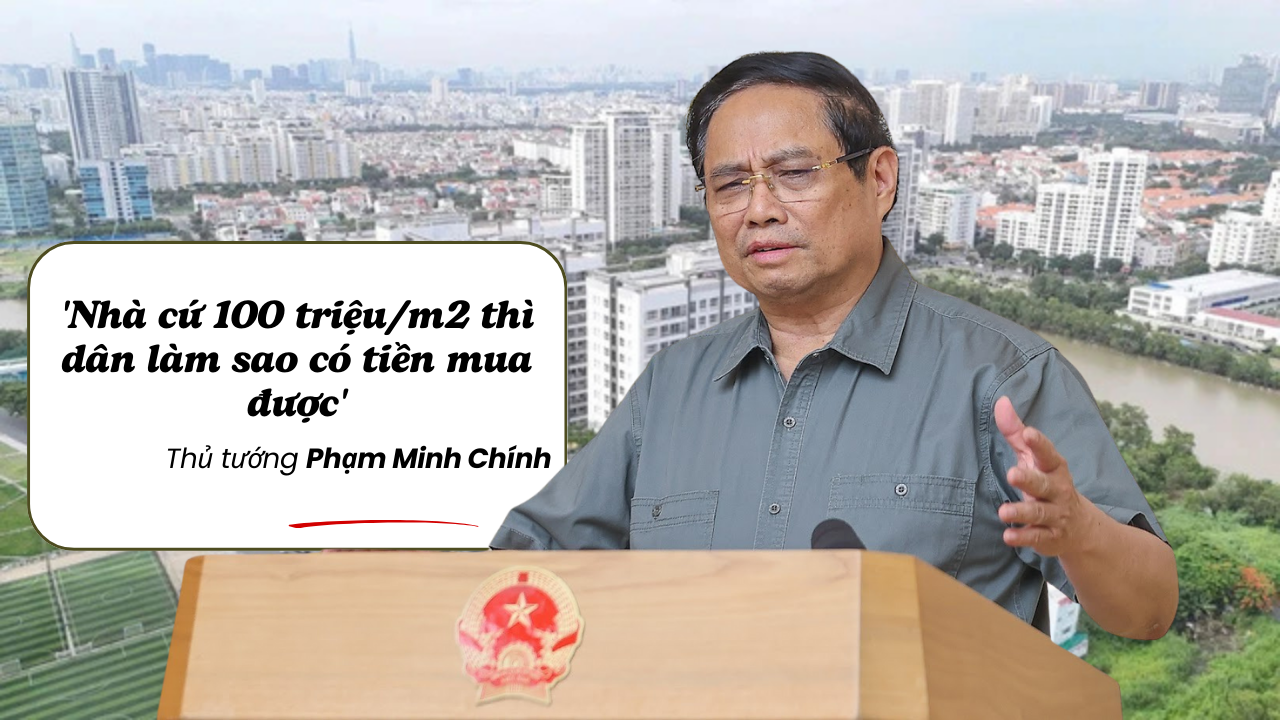
Prime Minister Pham Minh Chinh speaking at the regular meeting of the Central Steering Committee on Housing Policy and Real Estate Market
Explaining this situation, Dr. Pham Viet Thuan, Director of the Institute for Natural Resources and Environment Economics in Ho Chi Minh City, points to the developers’ objectives. According to Dr. Thuan, “the excessively high profit expectations and the focus on high-end projects prevent housing prices from decreasing, causing apartment prices to rise year after year.”
Additionally, he highlights the role of “mechanisms”: land price tables and land use fee calculation methods place a significant burden on project costs, making it difficult for projects to offer lower prices. Coupled with soaring input costs, particularly uncontrollable construction material prices, all these factors contribute to the final selling price.
From a market perspective, Mr. Le Hoang Chau, Chairman of the Ho Chi Minh City Real Estate Association (HoREA), shared that he attended the meeting with the Government and “understands the Prime Minister’s frustration.”
According to Mr. Chau, multiple factors drive high prices in major urban areas, but the root cause, persisting for years, is the shortage of affordable housing supply.
“The scarcity of supply is due to many low-cost projects being stalled. After years of delays, prices surge once they launch,” he noted, emphasizing that “legal obstacles account for over 70% of project delays.”
Mr. Chau argues that when the market is dominated by high-end apartments priced above 70 million VND per square meter, the supply structure becomes inverted, creating a “reverse pyramid model” that skews market segments and leaves low-cost housing absent for years.
HoREA now anticipates strong policy interventions to ease these constraints. Mr. Chau hopes that upcoming legal framework revisions, particularly in the Land Law, will facilitate ” smoother land use conversions,” especially for agricultural and industrial land designated for residential development.
“With more available land, new supply will increase, naturally cooling housing prices,” he stated. He also stressed the need to accelerate social housing programs. “The Government must expedite progress and encourage businesses to develop social housing to stabilize overall prices and ensure citizens can afford homes,” the HoREA Chairman urged.
Ho Chi Minh City Outlines Three-Phase Urban Development Strategy Around Metro Stations
From 2025 to beyond 2045, Ho Chi Minh City will undergo a transformative journey across three distinct phases, culminating in the completion of a comprehensive urban rail network. This ambitious project will seamlessly connect the city internally while fostering regional integration, marking a new era of connectivity and development.
Khải Hoàn Prime Unveils Exclusive Pre-Contract Launch Offer
Khải Hoàn Prime continues to captivate the Southern Ho Chi Minh City market with its exclusive release of 100% river-view resort-style apartments. This limited offering underscores its exceptional value as both a premier living space and a high-potential investment opportunity, especially as it approaches the pivotal moment of signing the official sales contract.

